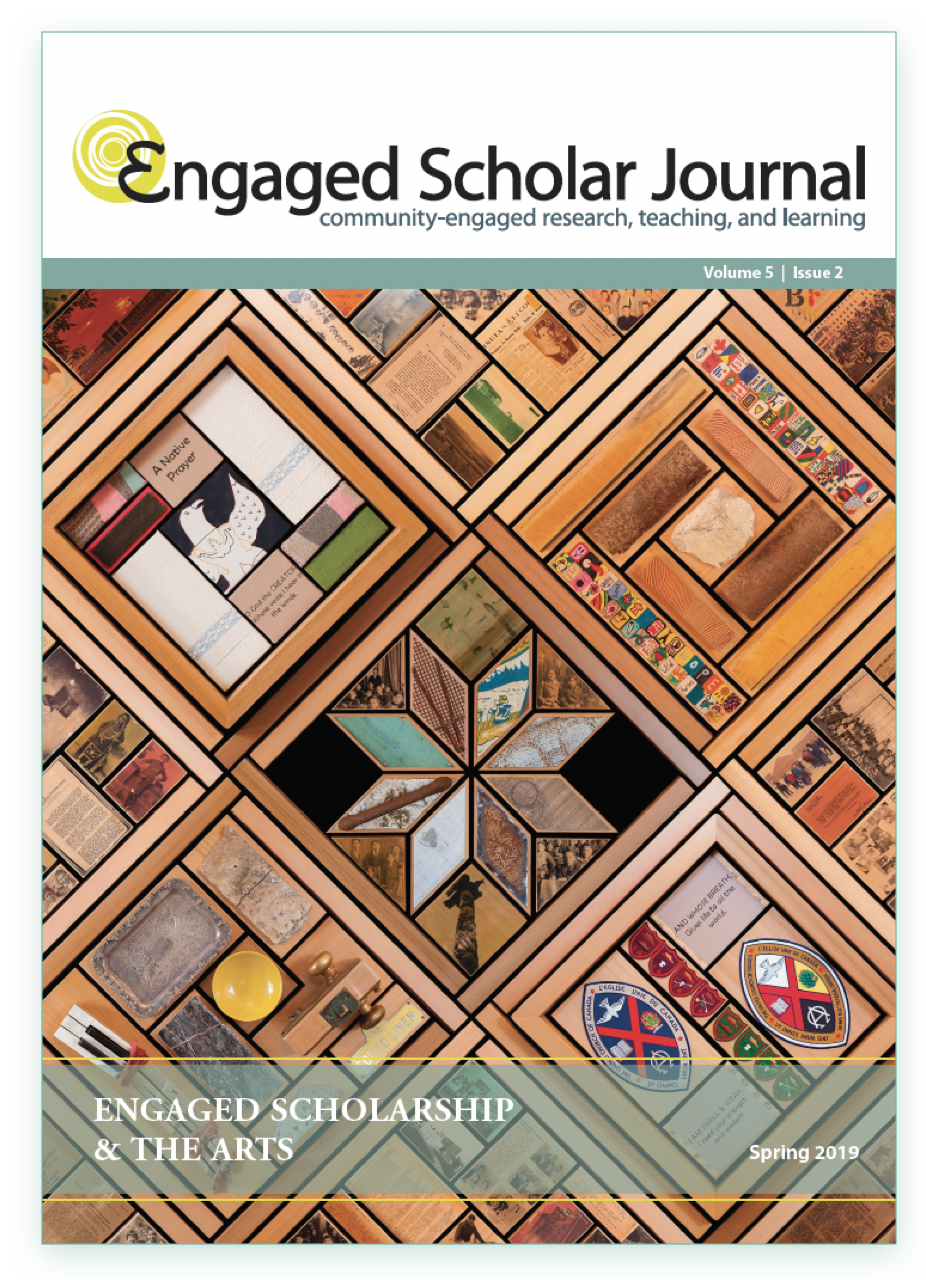Audience Engagement in Theatre for Social Change
DOI:
https://doi.org/10.15402/esj.v5i2.68351Keywords:
Theatre, creative leadership, audience engagement, social change, participatory art, expressive arts, therapeutic theatre, experiential learning, drama therapy, dramatic artsAbstract
This report from the field describes some of the author’s methods of audience engagement as a means of social engagement, discussing the implications for practice. The report invites dialogue with the reader about the usefulness of audience engagement and ways it can be manifested before, during and after performance. Theatre is a vibrant and valuable tool for sparking dialogue and inspiring action around challenging social topics. Audiences who are engaged in the process of the performance beyond the standard role of passive spectator are more likely to be motivated to deliverable endeavors post performance. This report from the field offers four brief case studies as examples of audience engagement and includes pragmatic techniques for using theatre as a vehicle for personal and social change through audience engagement. It explores how artists can galvanize and empower audiences by creating experiential communities pre, during, and post-show. Drawing upon examples from high-quality international theatre projects written and directed by the author, the essay investigates and describes the work of The H.E.A.T. Collective including My Heart is in the East (U.S., U.K. and Europe), The FEAR Project (produced in the US, India and Czech Republic), Emma Goldman Day (U.S.).
Downloads
Published
How to Cite
Issue
Section
License
Authors who publish with this journal agree to the following terms:
- Authors retain copyright and grant the journal right of first publication with the work simultaneously licensed under a Creative Commons Attribution License CC BY 4.0 that allows others to share the work with an acknowledgement of the work's authorship and initial publication in this journal.
- Authors are able to enter separate, additional contractual agreements for the non-exclusive distribution of the journal's published version of the work (e.g., post it to an institutional repository or publish it in a book), with an acknowledgement of its initial publication in this journal.
- Authors are permitted to post their work online (e.g., in an institutional repository or on their website) after the publication of their work in the Engaged Scholar Journal.
- Please note that while every opportunity will be taken to ensure author participation in the editing process, due to time constraints final copyediting changes may be made before publication to ensure APA adherence throughout all submissions.




